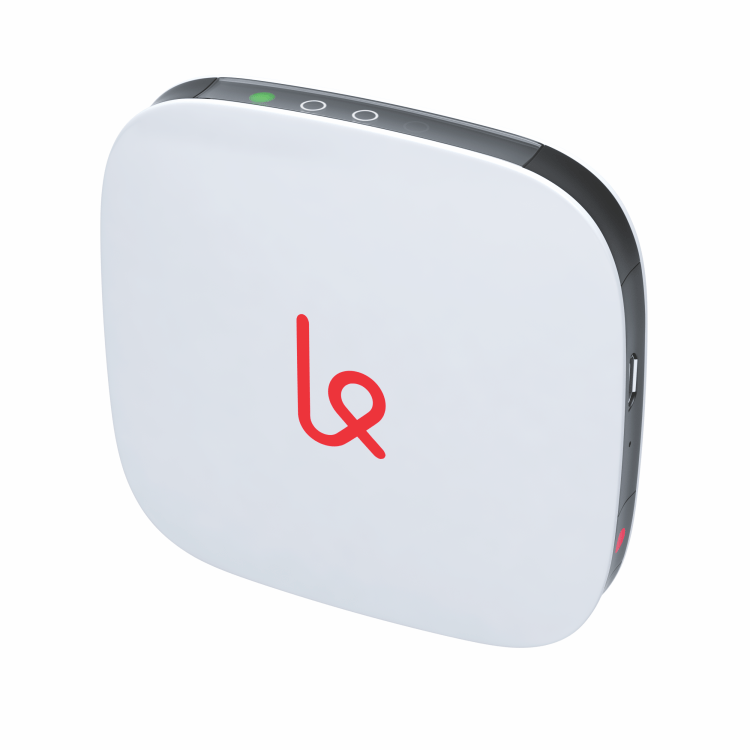Karma is trying to end the hunt for Wi-Fi with its latest portable wireless Internet hub.
The new device, called Karma Go, gives users nationwide coverage via Sprint’s 4G LTE and 3G network. Previously the company serviced only select regions and cities in the U.S.
Among the many companies that want to bring you wireless Internet anywhere you are, Karma does a couple of things differently. For one, there’s no monthly plan. Karma users buy the device and then buy data for $14 a gigabyte. That’s pretty reasonable when you consider how much the big telecoms charge for data on mobile phones. Plus with Karma the data never expires.
“So this is what I’m doing, I have an iPod touch or what I call an iPhone 6 mini” says co-founder Steven Van Wel. “But there’s no data on this. I use Google Voice, so it rings, and I’m always connected to Karma,” he says.
The device stays live for 220 hours on standby, and users can continuously browse for about five hours. The bottom line is that you can connect to the Internet from any device (laptop, tablet, phone) anywhere covered by Sprint’s 3G and 4G LTE network.
Being that Van Wel is a co-founder, he’s happy to rely on his own network. General users may not want to rely on Google Voice, with its at times spotty connection, to make phone calls — if you still even make phone calls. But Van Wel does paint a pretty picture of life without a two-year mobile contract.
Karma also differentiates itself from competitors by keeping the Karma network open. Up to eight people can connect to your Karma device and buy data from Karma. Van Wel says users are invisible to one another, making it difficult for hackers to get into your computer or leach data from your account. Even if Karma Go is secure, having eight people on one device will slow down the speed of your service. Karma boasts an Internet speed of 25 mbps, which is fine, but lower speeds could make for a frustrating Internet experience.
But if you don’t want to share, Van Wel says, you should probably go with another wireless provider. The two main competitors in the space are Clear and Freedompop. The latter is already on Sprint’s nationwide 4G LTE network but requires a monthly fee. Freedompop has expanded to offering devices and cell phone coverage, as well as supplying Internet to home networks — something that Karma has expressed interest in pursuing in the future. Karma originally launched on Clear’s wireless infrastructure before the company was acquired by Sprint.
The Karma Go device is priced at $150, though existing Karma users will get a 50% discount on the device. Early adopters can snag the device for $99.
VentureBeat's mission is to be a digital town square for technical decision-makers to gain knowledge about transformative enterprise technology and transact. Learn More

